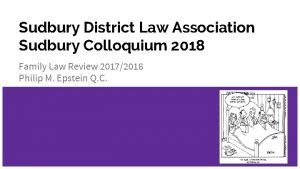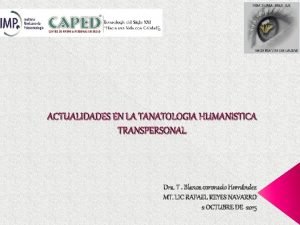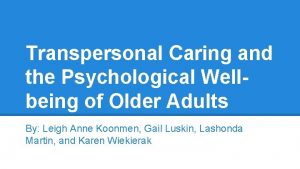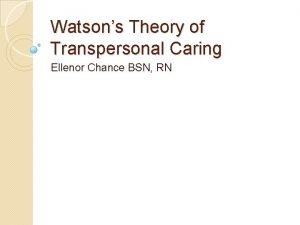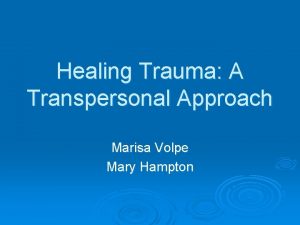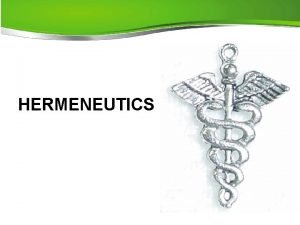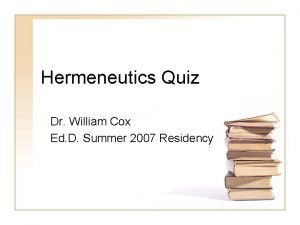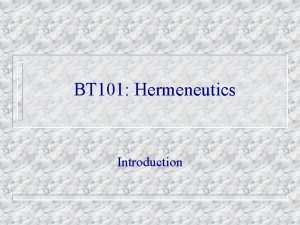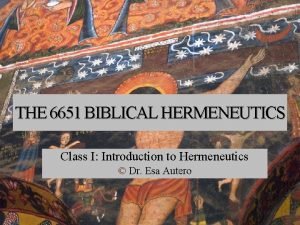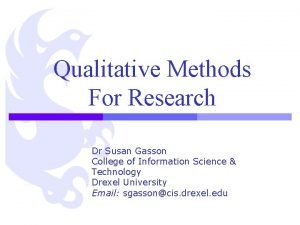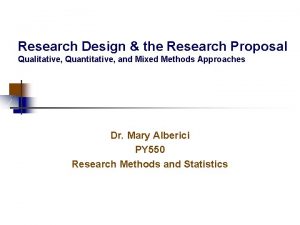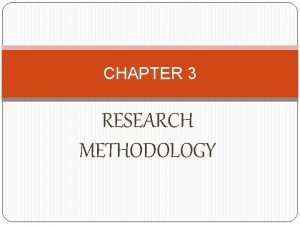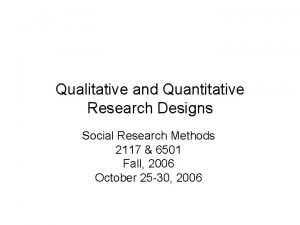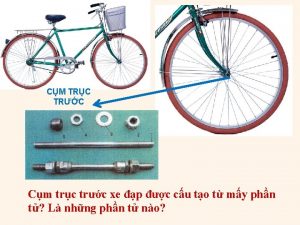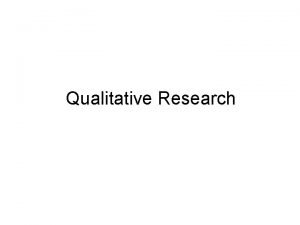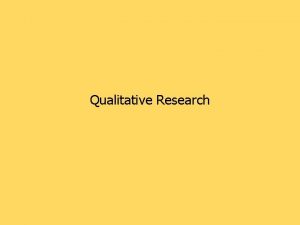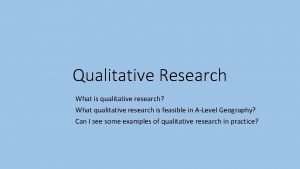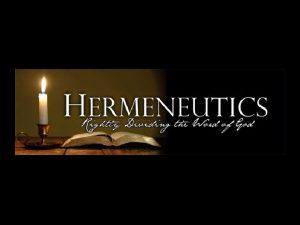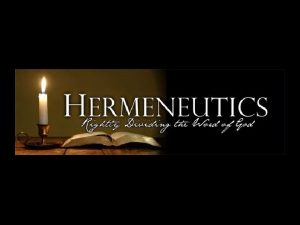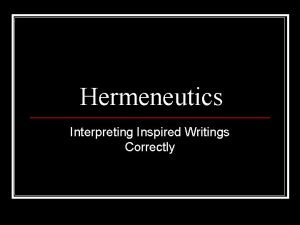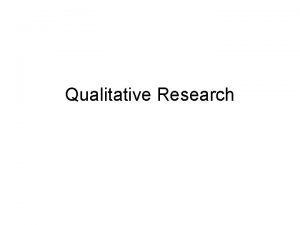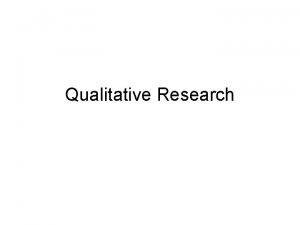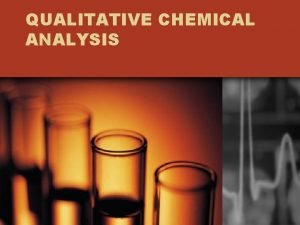Hermeneutics and Qualitative Research Transpersonal Research Colloquium TRC













- Slides: 13

Hermeneutics and Qualitative Research Transpersonal Research Colloquium (TRC) 2016 United Kingdom

Professor Emerita, Rosemarie Anderson, Ph. D. Sofia University, Palo Alto, CA USA rosemarie. anderson@sofia. edu www. rosemarie. anderson. com

Hermeneutics? What is it? • Etymologically, from “Hermes, ” Greek God of Communication • Art of Interpretation, Communication, & Translation • Origins within all religious & wisdom traditions with sacred texts • For oral traditions, interpretation is immediate

“Classical” European Hermeneutics • Friedrich Schleiermacher (Germany, 1768 -1834): Intuitive Exegesis • Hans-Georg Gadamer (Germany, 1900 -2002): Dialogical Imperative • Alfred North Whitehead (UK/USA, 1861 -1947): Participatory Impulse to see the world as a web of interrelated processes or “events”

Friedrich Schleiermacher (Germany, 1768 -1834) • Pastor, Chaplain, Theologian • Deeply passionate • Soul as “Force” • “…immediate intuition or feeling of God. ” • Translator of Plato’s Republic

Schleiermacher’s Intuitive Exegesis • Hermeneutics: “hypothesis testing” between meaning & grammar and interpreter’s intuition & imagination (Hermeneutic Circle) • Paradox of Translation involves 2 choices: 1. Leave author the in peace & move the reader toward the author (Cycle 4, Intuitive Inquiry, that is, participant quotes) or 2. Leave the reader in peace & move the author toward the reader (Cycle 5, Intuitive Inquiry, researcher’s conclusions)

Hans-Georg Gadamer (Germany, 1900 -2002) • Professor of Philosophy, Univ. of Marburg, Leipzip, Frankfurt, & Heidelberg • Student of Martin Heidegger • Truth and Method (1960)

Gadamer’s Dialogical Imperative • Structure of Plato’s dialogues as “key” to his hermeneutic circle • Entering into dialogue with text beings both the text and the reader into question – and changes both (central to Intuitive Inquiry) • PLAY as central to dialogue and hermeneutics (central to Intuitive Inquiry)

Alfred North Whitehead (UK/USA, 1861 -1947) • Professor of Mathematics & Philosophy (Cambridge, Univ. College London, Harvard) • Principia Mathematics with Bertrand Russell (1910) • Process and Reality (1929)

Whitehead’s Participatory Impulse • “Everything flows” -- Heraclitus of Ephesus, born ca. 560 BC • All of life is a process of becoming– not just dialogic but participatory & interdependent • “…Things of … the world” are “drops of experience, complex, and interdependent” • For hermeneutics & research is ACTION, that is, performative • The Sacred is a verb.



Professor Emerita, Rosemarie Anderson, Ph. D. rosemarie. anderson@sofia. edu www. rosemarie. anderson. com
 Sudbury colloquium
Sudbury colloquium Tanatologia transpersonal polo scott
Tanatologia transpersonal polo scott Transpersonal caring
Transpersonal caring Theory of transpersonal caring
Theory of transpersonal caring Transpersonal psychology
Transpersonal psychology Critical race theory tenets
Critical race theory tenets Hermeneuin
Hermeneuin Hermeneutics quiz
Hermeneutics quiz Hermeneutics 101
Hermeneutics 101 Hermeneutics class
Hermeneutics class Susan gasson
Susan gasson Appendix research sample
Appendix research sample Chapter 3 introduction example
Chapter 3 introduction example Qualitative vs quantitative
Qualitative vs quantitative
